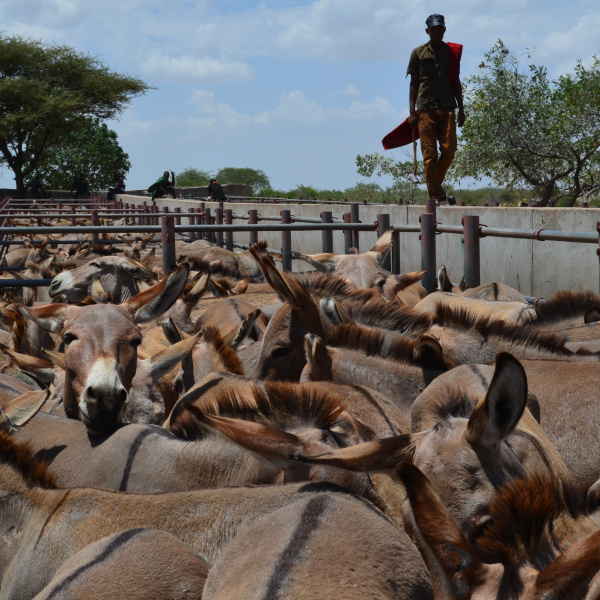In a Tanzanian market, hundreds of donkeys wait to be slaughtered for their skins. The market was set up to serve ever-growing demand for emiao - traditional Chinese medicine made with gelatin extracted from donkey skin.
Whether they wait days or weeks, most of the donkeys here will end up at an abattoir where they will be slaughtered for their skins.
Without their donkeys, people have no way to pull their carts, carry water or firewood. Communities left bereft of their animals are being forced to do the 'donkey work' themselves, which threatens to increase poverty. Demand for donkeys has also pushed up prices, meaning poor communities can’t afford to buy new ones. In Tanzania the price of donkeys has risen from around 50,000 Tsh (£5-7) in 2010 to 190,000 Tsh (£60) today. Their skins, however, are being sold at 450,000 Tsh (£160).
For many this price tag overshadows the long term economic value of their donkeys, which they decide to sell for short term profit. According to ‘Under the Skin’, a new report by The Donkey Sanctuary on the skin trade, a working donkey in Ethiopia can generate net income of $330 (around £262) a year. Most donkeys will work for 10 years, which means in the long run they are worth much more alive than dead.
Under the Skin reveals the shocking extent of the trade, which is hitting communities across the world from Brazil to Pakistan. Ejiao is a hard gel that can be dissolved in hot water or alcohol to be used in food or drink. It is also used in beauty products such as face creams. Like other traditional medicine like rhino horn and tiger parts, demand for ejiao has been driven in recent years by China’s growing middle classes.
As many as 10 million donkeys are being sought after to make ejiao, resulting in a chain of welfare issues for the donkeys at every step from sourcing to transport and finally to slaughter.
The Donkey Sanctuary is calling for a halt to the trade until it can be shown to be both humane and sustainable for the donkeys and the communities that depend on them.
For the donkeys waiting at Dodoma market it can't come a moment too soon.
